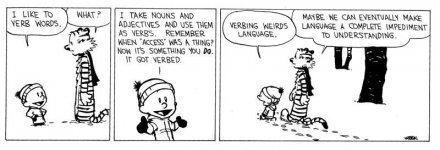Dixie

Referees in England
- Joined
- Oct 26, 2006
- Messages
- 12,773
- Post Likes
- 338
Crikey RobLev - you're going the long way around winning this (slightly tedious) discussion!
Ian, RobLev is correct in challenging your assertion that 15.7 makes it illegal for a tackler to fall so that the ball is between him and the tackled player. The reason has to do with timing.
15.7c limits its scope to what happens after a tackle has taken place:
[LAWS](c) No player may fall on or over the players lying on the ground after a tackle with the ball between or near to them.
Sanction: Penalty kick[/LAWS]
The tackler hits the deck during the tackle, not after it - and so this law is not brought into play, despite its reference to "No player" seemingly encompassing all players. It actually means All Players Who Did Not Hit The Deck During The Tackle, and so does not cover the (possibly multiple) tacklers and the tackled player(s). Tackle Assist most definitely IS covered, however.
Ian, RobLev is correct in challenging your assertion that 15.7 makes it illegal for a tackler to fall so that the ball is between him and the tackled player. The reason has to do with timing.
15.7c limits its scope to what happens after a tackle has taken place:
[LAWS](c) No player may fall on or over the players lying on the ground after a tackle with the ball between or near to them.
Sanction: Penalty kick[/LAWS]
The tackler hits the deck during the tackle, not after it - and so this law is not brought into play, despite its reference to "No player" seemingly encompassing all players. It actually means All Players Who Did Not Hit The Deck During The Tackle, and so does not cover the (possibly multiple) tacklers and the tackled player(s). Tackle Assist most definitely IS covered, however.



